Getting a Thai credit card can be challenging for Thais let alone expats.
This is because banks hold us to different standards. They require expats to make more money per month if we’re employed or, if we own a business, we have to wait years before we can apply for a card.
But not all hope is lost. In fact, if you meet some of the minimum requirements you can get a Thai credit card with relative ease.
By the end of this guide, you’ll discover which Thai credit cards are best for expats, the requirements you need to meet in order to apply for one, and how much of a limit you might be able to qualify for.
That said, we also offer an ExpatDen Premium Membership. When you join, you get immediate access to hundreds of exclusive Thailand guides that will show you how to save thousands of dollars, land a job, start a business, manage your finances, and much more.
"*" indicates required fields
Disclaimer: This article may include links to products or services offered by ExpatDen’s partners, which give us commissions when you click on them. Although this may influence how they appear in the text, we only recommend solutions that we would use in your situation. Read more in our Advertising Disclosure.
Contents
- Key Takeaways
- Benefits of Having a Thai Credit Card
- Applying for a Thai Credit Card
- Easiest Bank to Get a Thai Credit Card From
- Thai Credit Card Providers
- Best Credit Cards in Thailand
- Choosing a Thai Credit Card
- Credit Limits
- Interest Rates
- Paying Your Thai Credit Card Bills
- Credit Card Fees
- Waiving Thai Credit Card Fees
- Foreign Transaction Surcharges
- Comparison Websites
- Secured Thai Credit Cards
- Alternatives
- Now, on to You
Key Takeaways
- To qualify for a Thai credit card, you generally need to earn at least THB50,000 and have owned a work permit for at least six months.
- If you own a business, you need to run a business for a few years before applying for a Thai credit card.
- If you can’t get a standard Thai credit card, you can get a secured credit card by depositing between THB100,000 to THB200,000, depending on the bank.
- Kasikorn Bank, Bangkok Bank, SCB, and UOB and the most popular banks to apply for a Thai credit card with.
- It’s better to apply for a Thai credit card online rather than visiting a bank branch in person.
Benefits of Having a Thai Credit Card
Although you can use your home country credit card almost anywhere they are accepted in Thailand, having a local Thai credit card offers some benefits.
Online Shopping
With a Thai credit card, you can shop online and even order groceries online. Several online shops limit payment options to local Thai credit cards possibly because of unwanted usage fees and fraud issues.
Cash-Back Rewards
If you frequently eat out at restaurants or often fill up your car with gas, you can take advantage of a number of cash-back options that yield anywhere between 1 percent and 5 percent.
Discounts
Many restaurants offer discounts when you use a credit card. These discounts are only valid for Thai credit cards and are often based not on the type of credit card but the bank that issued it.
Discounts range from 5 percent to 20 percent and can be even higher in some cases.
Loyalty Programs
Airlines like Thai Airways and Bangkok Airways cooperate with Thai credit card issuers, offering points that you could exchange for free upgrades and flights.
In addition, there are loyalty programs from department stores that provide discounts. However, many don’t seem to benefit users like airline programs do.
Applying for a Thai Credit Card
Credit cards are a tricky business for expats in the country. Even if you work in Thailand, you’ll find that the process tends to be harder for us than for locals.
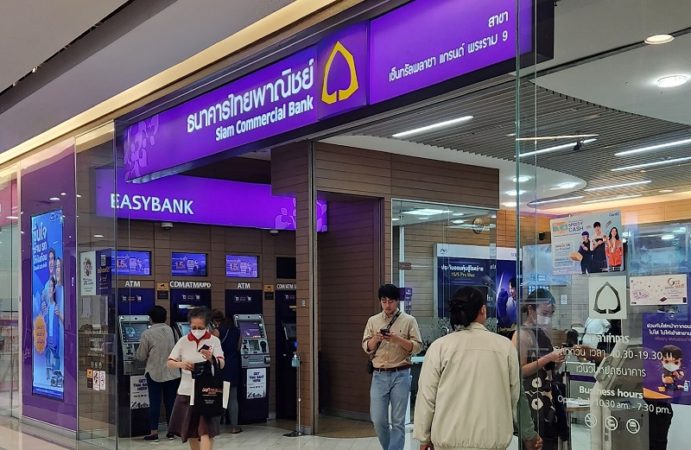
Things get even trickier if you run a business in Thailand. One day, our administrator at ExpatDen walked into the office with a giant teddy bear. She’d just gotten it for signing up for a credit card at a booth downstairs. When ExpatDen’s founder went to ask about a card, he was told he wasn’t eligible.
That said, you can get a Thai credit card if you meet certain requirements.
Requirements
In order to apply for a Thai credit card, you need to have a work permit, show proof of income, and meet some other requirements.
Work Permit and Salary Slips
A number of banks will ask for you to show a Thai work permit that is valid for at least another six months. You also have to show three months worth of salary slips. This means you’ll need to wait three months to apply for a Thai credit card.
In some cases, you’ll also need to show that you’ve been employed for longer than three months. For self-employed, you have to show income history for up to three years. However, these requirements vary from card to card.
If you don’t have a Thai work permit, you might still be able to get a credit card if you deposit THB100,000 to THB200,000 into a fixed-term account with the bank as a guarantee.
Read more: Want a Work Permit in Thailand? Here’s How to Get One
Minimum Income
Usually, expats have to show banks more minimum income than Thais to qualify for a credit card. This amount usually starts at THB50,000 for most banks.
UOB has a list of Thai credit cards available to expats. Click on any of these cards to find out their privileges, promotions, rates, and fees.
More specifically, though, UOB’s PRIVI MILES Card requires Thais to have a minimum income of THB70,000 per month, whereas expats need at least THB100,000.
As you can see, each credit card company has different requirements. So it’s best to check with the company you’re interested in getting a card with.
If you own a company, your chances of getting a Thai credit card are even slimmer unless you meet some additional requirements. It’s an unwritten rule that you need to run a business in Thailand for at least a few years before you can apply for a Thai credit card.
Age Limits
Some credit card companies also have an age limit for applicants and supplementary card holders. For instance, some Thai banks may require applicants to be at least 18 years old, whereas others may set the minimum age to 21 years old.
Application Process
The Thai credit card application process is fairly straightforward.
First, fill in the online form. You’ll have to supply your name, contact details, salary, and other info.
After a few days, a representative from the bank will call you back and ask you a few questions about your job and income.
Then the bank will ask for a number of documents, which you can gather and send via a motorbike messenger service.
The approval process should take seven to 15 days.
We recommend applying online, as the in-person booths or individual bank branches don’t always know the regulations and requirements related to expats.
Easiest Bank to Get a Thai Credit Card From
You have many options for guaranteeing yourself a credit card, but sometimes it depends on where you open a bank account in Thailand. You might have to wait a few months before you finally get a card, though. That said, the first bank willing to provide ExpatDen founder Karsten with a Thai credit card was Kasikorn Bank.
And the first bank to provide him with company credit cards was Bangkok Bank. Just like with bank accounts themselves, those two seem to be the easiest to deal with and two of the better choices when it comes to getting the best exchange rate in Thailand.
With the requirements out of the way, let’s look at some popular Thai credit card providers for expats.
Thai Credit Card Providers
Getting a credit card in Thailand may seem impossible. However, many banks offer credit cards to expats if they meet the requirements.
The most reputable of these banks are:
- Kasikorn Bank (KBank)
- Bangkok Bank
- Siam Commercial Bank (SCB)
- KrungSri
- UOB Bank
Qualifying for a Thai credit card as an expat depends on your salary. Banks will assign or recommend to you a credit card based on this amount.
Best Credit Cards in Thailand
Let’s take a look at some of the most recommended credit cards for expats in Thailand.
Kasikorn Bank’s Passion Card
The Passion Card by Kasikorn Bank (KBank) is a good card for expats in Thailand who earn a mid-range salary. It’s the most popular card and is what the bank teller will most likely recommend to you.
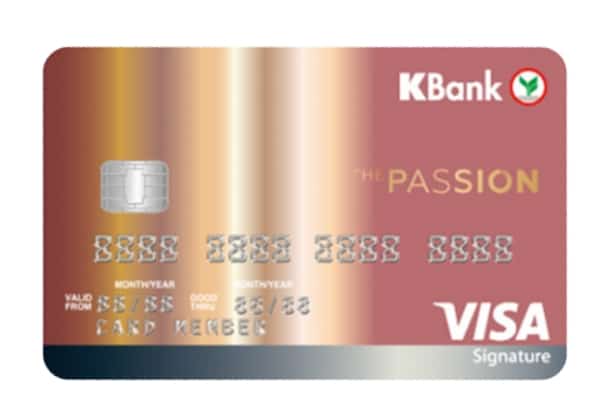
This card has a minimum salary requirement of THB70,000 per month.
The Passion Card is also a rewards card. It offers THB10 for every 100 points as cash back. You can redeem these reward points at hotels and restaurants. You can also earn 3X points when you use your credit card overseas.
If you already have a checking account with KBank, we recommend applying for one of its credit cards. It works seamlessly with its banking app.
If you make less than THB70,000 a month, have a look at its Platinum Card instead.
SCB Bank’s Ultra Platinum
SCB Ultra offers a variety of credit cards to expats, and you can qualify for one based on your income.
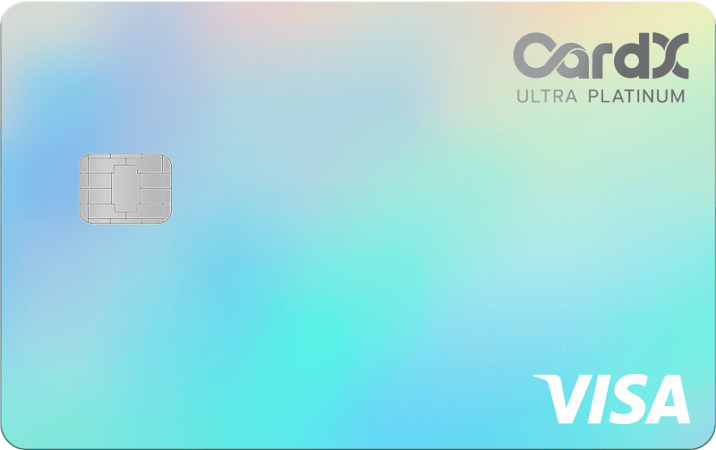
Its credit cards are some of the best in Thailand, and SCB has a user-friendly online banking system too.
However, to qualify expats must have a monthly salary of at least THB100,000 and prove it with payslips.
Some credit cards will require even higher salaries. If you can meet the requirements, this is one of the best banks to apply for a Thai credit card with.
The Ultra Platinum Card is one of the best. You get 1 reward point for every THB25 you spend. You can apply these points for discounts at restaurants and car rentals kiosks.
UOB Bank’s PRVI Miles
UOB Bank PRVI Miles is a great credit card if you want to rack up airline miles and airport lounge privileges. You don’t have to work for a Thai company to qualify for one either.
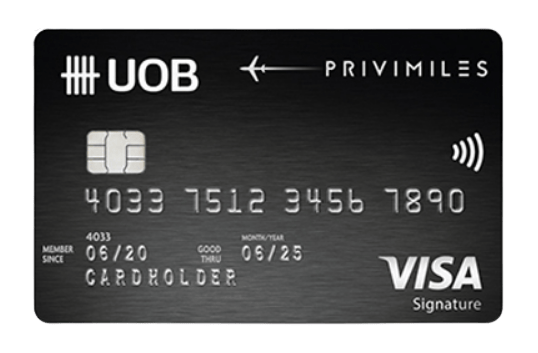
However, you must meet the minimum income requirement of THB100,000 per month. If you make a decent salary through a company outside of Thailand, this is the best card to apply for.
Additionally, this card is a great alternative if you were first looking at a CitiBank credit card.
CitiBank was once a popular credit card for expats in Thailand. However, UOB recently acquired all CitiBank branches in the country.
Unlike the other two banks, UOB is a Singaporean Bank. Therefore, if you work or often travel to Singapore, this card is ideal.
AEON
A good Thai credit card for Thai Airways privileges is the AEON Royal Orchid Plus Platinum Card.
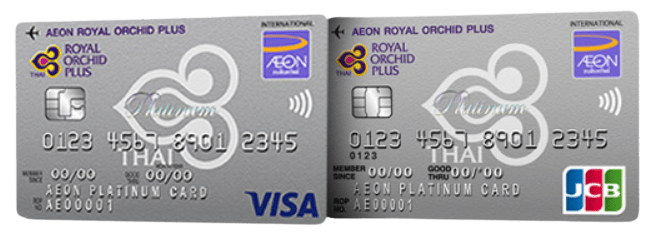
It comes with 3 percent cash-back rewards for restaurants and hotels. The yearly fee for the card is a bit cheaper than Citibank at THB3,000.
We don’t personally know any expats who have this card, but just based on our research it seems to be one of the most interesting cards if you’re looking to collect Royal Orchid Plus miles.
Choosing a Thai Credit Card
If you live in Thailand and make a decent salary, you probably won’t have too many problems getting a Thai credit card. At this point, the questions change from: Which ones can I get? to Which ones would you like to have?
Most Thai credit cards offer loyalty programs, and the best way to use those points is to exchange them for air miles.
In Thailand, we recommend going with FlyerBonus, a frequent flyer program offered by Bangkok Airways. It partners with Etihad, Air Berlin, Cathay Pacific, and JAL, among others.
You can also go with Royal Orchid Plus, a frequent flyer program offered by Thai Airways and part of the Star Alliance network.
The reason we recommend Bangkok Airways is that roughly every other year, you can take advantage of some massive promotions.
Sometimes, Bangkok Airways offers all routes at a 70 percent discount from the usual cost in miles for a limited time period. Kasikorn Bank and KrungSri feature bi-yearly promotions offering bonuses of up to 50 percent when exchanging your points for miles.
The best part about this? You can combine promotions to increase your mileage points six-fold. It’s best to keep your credit card points (which don’t expire) and wait to exchange them until an offer of this kind rolls around.
If you prefer to go with Thai Airways, there are a number of local cards that let you exchange points for miles or other options.
Credit Limits
Credit card limits depend on your salary. While they vary by person, most starting credit lines range from THB20,000 to THB30,000 more than your monthly salary. For example, if you earn THB80,000 a month, your credit line will be somewhere around THB110,000.
You can request a limit increase with most credit card companies. But to request a higher limit, you have to fill out a form and show ID, salary slips, bank statements, or bank account balances.
Banks could also temporarily increase your credit limit if you travel abroad and need money in an emergency.
You can do this within your bank’s mobile app. Alternatively, you can call the bank or visit one of its branches.
They can increase your credit line by 10 percent to 40 percent. If you have good credit history, they might even increase your limit by 100 percent.
However, your maximum credit line, whether temporary or permanent, can’t be more than five times your monthly income. For example, if you make THB100,000 a month, your credit line can’t surpass THB500,000.
Interest Rates
Credit card interest rates are 16 percent for all the credit cards listed in the above section. This is an average interest rate and is used with most credit cards that offer rewards. This interest rate is also comparable to ones in the U.S.
Of course, if you pay off your credit card balance each month, you won’t be charged any interest.
UOB PRVI Miles offers a generous grace period of 55 days from the date of the previous billing cycle. This is much more flexible than any credit card through KBank, which offers a 15- to 25-day grace period from the date of the previous billing cycle for its Passion Card.
You can also get access to cash advances with Thai credit cards. But be aware that interest rates kick in instantly, and you don’t have a grace period to pay it off.
Paying Your Thai Credit Card Bills
Each of the above mentioned cards has their own banking app, which makes paying off your Thai credit card painless. You can review your transactions and pay your balance through the app.
If you can’t use a banking app, you can pay at your credit card’s issuing bank’s ATM.
Alternatively, you can pay in person at a bank branch.
You can also automate payments by having the bank deduct your balance from your bank account each month.
In general, KBank and SCB have the most user-friendly apps.
Credit Card Fees
Annual fees depend on the benefits of the card. You can pay between THB2,000 to over THB10,000 a year.
Many cards, including the KBank Passion and UOB PRVI Miles, have annual fees of THB4,000.
Annual credit card fees are typically waived during the first year.
Waiving Thai Credit Card Fees
Fortunately, most credit card membership fees can be waived if you spend above a certain amount each year.
For example, the UOB PRVI Miles Card has an annual fee of THB4,000. This can be waived if you spend THB300,000 a year with the card. The SCB Ultra Platinum card has an annual fee of THB5,000. This can be waived if you spend THB100,000 a year.
For KBank Passion Card, the fee can be waived if you make 12 transactions in a year.
Foreign Transaction Surcharges
Foreign transaction surcharges are the hidden anti-loyalty program. That is, the more you use the card, the more penalties you pay.
For frequent travelers and people who buy a lot of items online (especially businesses), this is the single biggest cost of credit card usage, easily eclipsing any annual fee you might pay.
Credit cards issued in Thailand usually have a 2 percent surcharge when used abroad. Some cards go as low as 1 percent, whereas others charge as much as 2.5 percent.
The points collected from loyalty programs rarely make up for the additional fees charged, so if you have the chance to use a local credit card for your purchases somewhere else, it’s best to go with that.
If you travel often or place a lot of online orders, the volume based foreign transaction fees of Thai credit cards can really add up.
For instance, if you book a US$900 flight online, you’ll pay an additional US$23.50 in hidden exchange rate fees when paying with a typical Thai credit card.
For non-Thai Baht purchases, you’re usually better off with a foreign credit card that doesn’t charge a foreign transaction fee. These kinds of cards are available in many countries.
Of course, the reverse is true as well. If your foreign-issued credit card has a foreign transaction surcharge, your payments in Thailand give your card issuer an additional 2.5 percent kickback that comes out of your own pocket. Sometimes this is listed separately, other times it’s included in the exchange rate as a so-called hedging fee.
Comparison Websites
If you’re looking for an easy way to find the best Thai credit card for your needs, we offer a list of credit card comparison sites as part of our ExpatDen Premium Membership.
When you join, you can unlock thousands of dollars in savings and discover how to live a hassle-free expat life in Thailand.
Secured Thai Credit Cards
There are other banks in Thailand that offer secured credit cards. These are essentially prepaid cards with rewards. They aren’t the same as credit cards, as they don’t require money you already have to qualify for one.
Bangkok Bank offers this type of credit card to expats because it’s less risky for the bank. Be mindful though, as they advertise these prepaid cards as credit cards.
If you’re looking for a credit card for emergencies, a secured prepaid credit card won’t be enough.
However, a secured card is ideal if you don’t meet the minimum salary requirements to qualify for a credit card. But these cards do have some of the same benefits as a traditional Thai credit card. For instance, you can use it to rent a car and earn rewards.
To apply for a secured credit card, you need to deposit a minimum amount of THB30,000 into an account. You can only spend the amount you deposit though. The bank won’t add any additional credit to you account.
The requirements for a secured credit card with a line of credit are as follows. Keep in mind, though, that they may vary depending on the bank.
- salary slips (between six and 12 months worth)
- six months worth of bank statements
- work permit
- passport
You don’t need to meet any minimum salaries for a secured Thai credit card, as you can only spend money that you’ve already deposited in the account.
Alternatives
Credit cards aren’t quite as essential in Thailand as they are in other countries. For a lot of situations, you can pay for things without a card.
QR Codes
Nowadays, most businesses and individuals in Thailand can accept payments through banking QR codes. In fact, this is becoming the standard way to pay for things in the country.
From large chain stores at the mall to local mom and pop shops at the market, almost all of them offer banking QR code payment options.
Also, banks in Thailand have recently started working with banks from other countries — mostly around the ASEAN region — to start making international banking QR codes available to tourists.
This means you can pay for something in Thailand using your home country’s bank app without needing Thai currency. But keep in mind that banks on both ends will charge exchange rate fees for this service.
ATMs
Where you’re from, you may only use ATMs to withdraw cash or check your account balance.
In Thailand however, these machines tend to replicate a good part of the online banking features you’re used to back home. In fact, you can use ATMs to pay other individuals and businesses.
Convenient Stores
Expats aren’t the only ones who have a hard time getting credit cards in Thailand. A significant part of the population doesn’t own any plastic either.
So they choose to pay their bills in cash at local convenience stores like 7-ELEVEN.
Thai Debit Cards
One of the easiest ways to pay for something in Thailand — whether online or in person — is by using your Thai debit card.
Of course you won’t be able to spend more than you have in your bank account, and in some cases you might have a daily limit on how much you can use.
Most businesses in Thailand accept Thai debit cards, however. Keep in mind, though, that almost all mom and pop shops and market sellers in Thailand don’t accept debit cards.
Now, on to You
If you have any experience applying for a Thai credit card or have some of your own tricks to share, let us know in the comments.
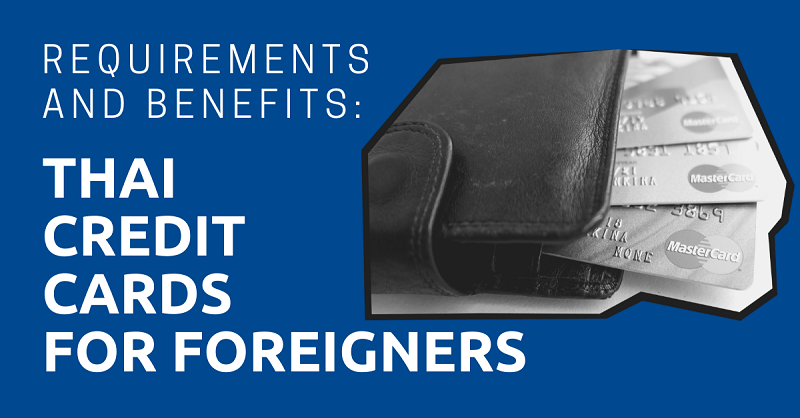




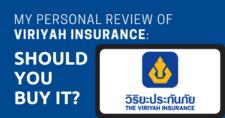
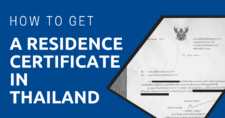
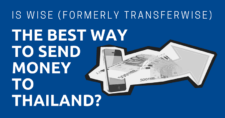
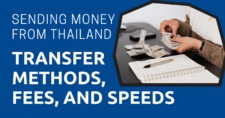


Dear expat
I appreciate your efforts you did a great work
But I personally went to 5 branches of Bangkok bank and they confirmed that they don’t offer credit cards anymore atleast you deposit your own money and get just a platinum master in exchange 90% credit line from your own money
Kasikorn bank is not a friendly bank too
Citibank and Amex are flexible if someone stable good income and no criminal record as they check it secretly
Krungsri is a hard bank too but in my case they gave a very good credit line Visa signature which come with dragon pass and much more
For this reason I terminated all my work with kasikorn bank my company account with them my personal two accounts with them my salary account for a long time with them
My life insurance 47000 baht a year also with them and they say pledge your own money WTF
I kicked them and moved to krungsri as a reward for there good credit card they gave without having no product with them
Thanks a lot for the reply. It’s definitely getting harder for banks to issue credit cards to expats.
How do you find out about the Bangkok Airways or Kasikorn bank points promotions?
I just enrolled in the FlyerBonus program. Do they send the offer in one of their promotional emails to people on their email subscriber list?
Yes, they normally send a promotion on their email. For Kasikorn bank points, sometimes, they also mention on the credit card statements.
Do Thai bank accept full and final settlement offer on credit card debit in farangs name as I owe kbank a bit and want to paynit but not all the interest but due to mymhealthnim in the UK but happy to transfer the money to them
I’ve got a question to ask. If I live in Thailand and have 2 outstanding credit cards I’m paying back at interest, could I transfer my debt onto another credit card with 0% interest? Or is the law different in Thailand to the UK? Also, UK has money supermarket for comparisons, does Thailand have a native version of that, or variation of money supermarket?
Hi Karsten,
I’m a Singaporean, currently working in Bangkok, but now my company going to send to another country for work… i had been working in Bangkok for 3 years and I still have outstanding with my credit, so how do I pay them while I’m not in Bangkok, while working in mayalsia?
If I don’t pay the bank what will the bank do?
Thank you.
Hi Karsten,
Wanted to share my personal experience especially since i also relied on your blog for advice.
This is my 3rd month employed locally in Bangkok, Thailand. Working in insurance (occupational hazard), I had a thorough read of all various bank conditions and i found different consistency (not surprising). But CitiBank Thailand criteria seemed to help my case the most:
Submission
– Valid work permit (one year on B Visa status)
– Latest payslip (i used my 2nd month payslip) and reflection it meets income requirements
– Passport
– Lease Agreement
– Bank statement reflecting salary crediting (in the criteria it says “updated within last 3 months, there is no specific indication that one must work or lived in Thailand for a minimum number of months – usual has been 6 or 12 months minimum)
– Employment Contract (i offered them)
On the same day, I did the above with SCB which is the bank my salary is credited to.
On both occasions, I did it manually at the bank premises. Citibank office at Asoke and SCB in Emquartier. I do not have any CitiBank savings or current account.
I did the above with zero expectations as mentally i was prepared for the 6 month or 12 month minimum “wait period”
Within a week, I received the CitiBank credit card. I received a credit limit of about more than double of my monthly salary.
I am still waiting for SCB’s official reply.
Just sharing above as I think credit card companies like AmEx or CitiBank may provide flexibility for unsecured credit facilities. I would consider my experience to be fortunate in getting my unsecured credit card really quickly (from other stories i’ve read).
Thanks for letting me share this Karsten, as I have also learned a lot of the country reading your blog.
Thanks Jon, that’s super helpful! I really appreciate you taking the time to share this!
Hi Karsten, when you receive the monthly bill – how do you make payment? (via bank transfer or cheque)?
I found this new app from AIS, called Mpay and it seems capable of paying various utility and credit card bills in Thailand (disclaimer: i don’t work for AIS!)
Thanks for the heads-up on Mpay.
I have it automatically deducted from my account. Pretty much my preferred method for any bill in Thailand (though sometimes it can be a hassle to set up).
Thanks a lot for this new detailed article! I’m also very interested in the Citibank Royal Orchid Plus Select, which is to my mind one of the most interesting. But I’m blocked since I don’t have a work permit. Any idea if a fixed term deposit account is possible with Citibank instead?
Not to my knowledge. But if you’re a Citigold member it might be possible? Maybe check with Citibank’s premier customer department to see what they say.
I’ll check this out. Thanks!
I just got a call today from Citi Bank after I applied for this credit card. I asked if it was possible to get it without work permit and a deposit instead. She said it’s only possible for people with retirement visa and at least 1,000,000 bahts.
Thanks for reporting back on this! I’ve updated the information in the article accordingly.